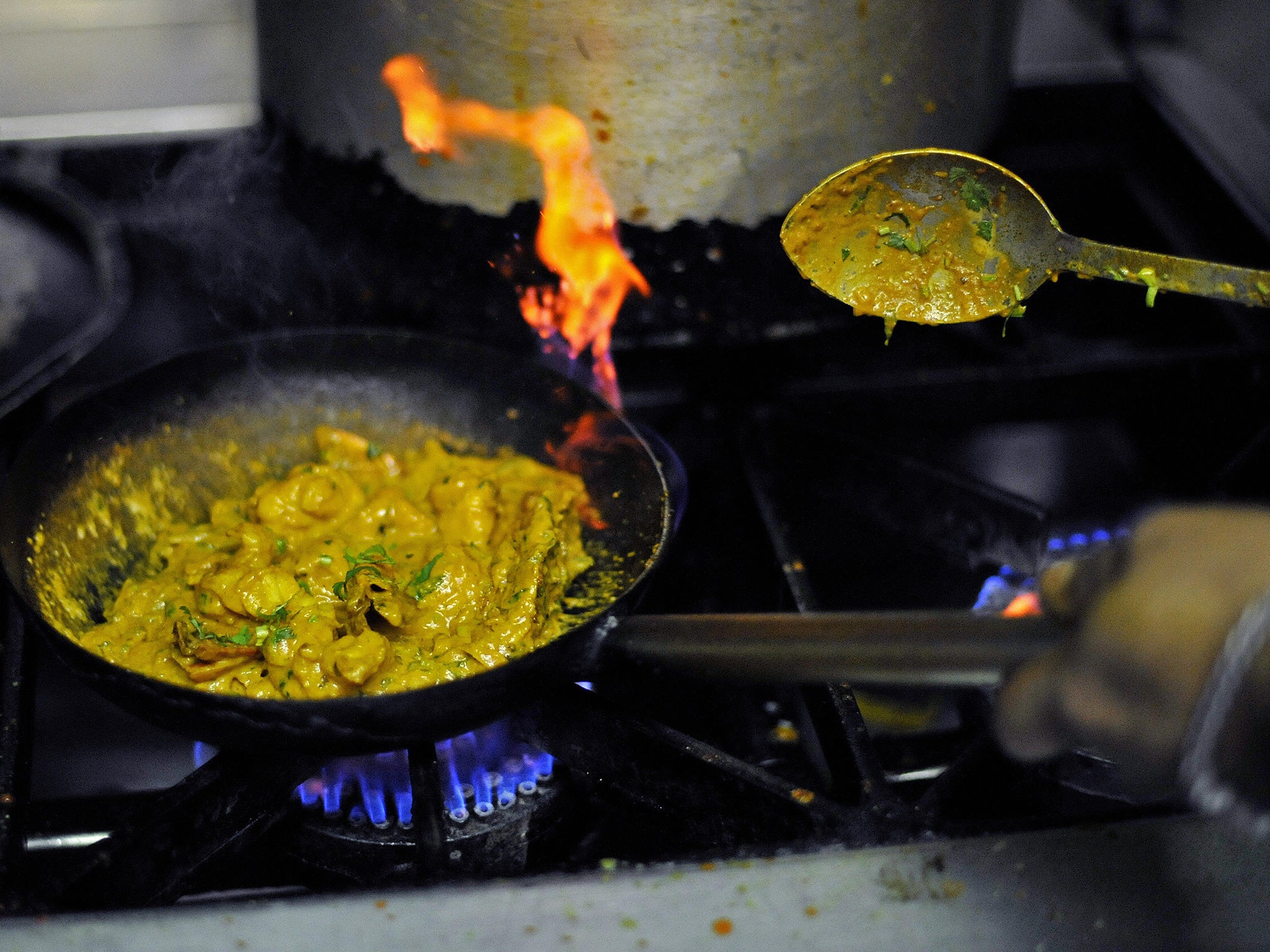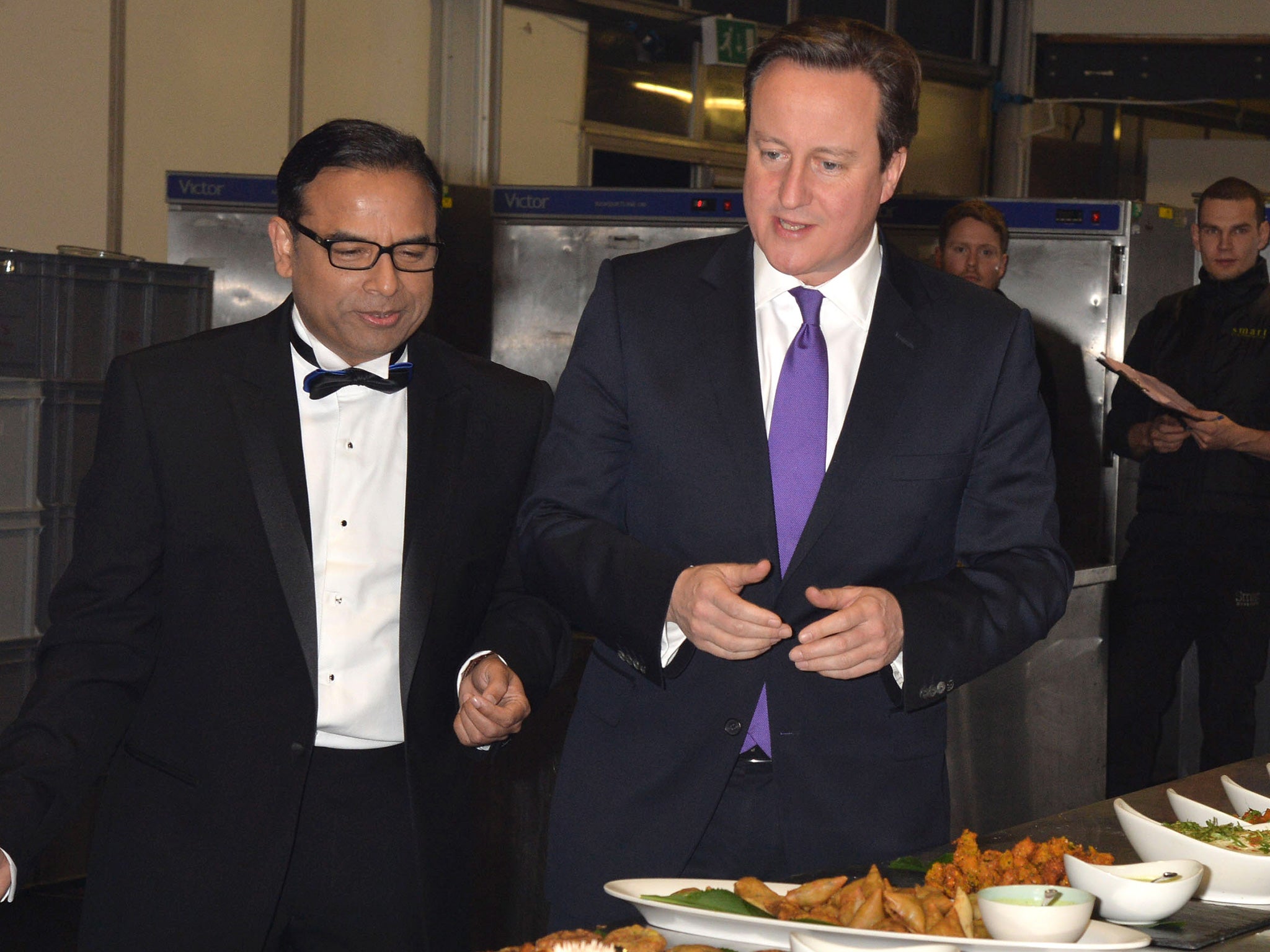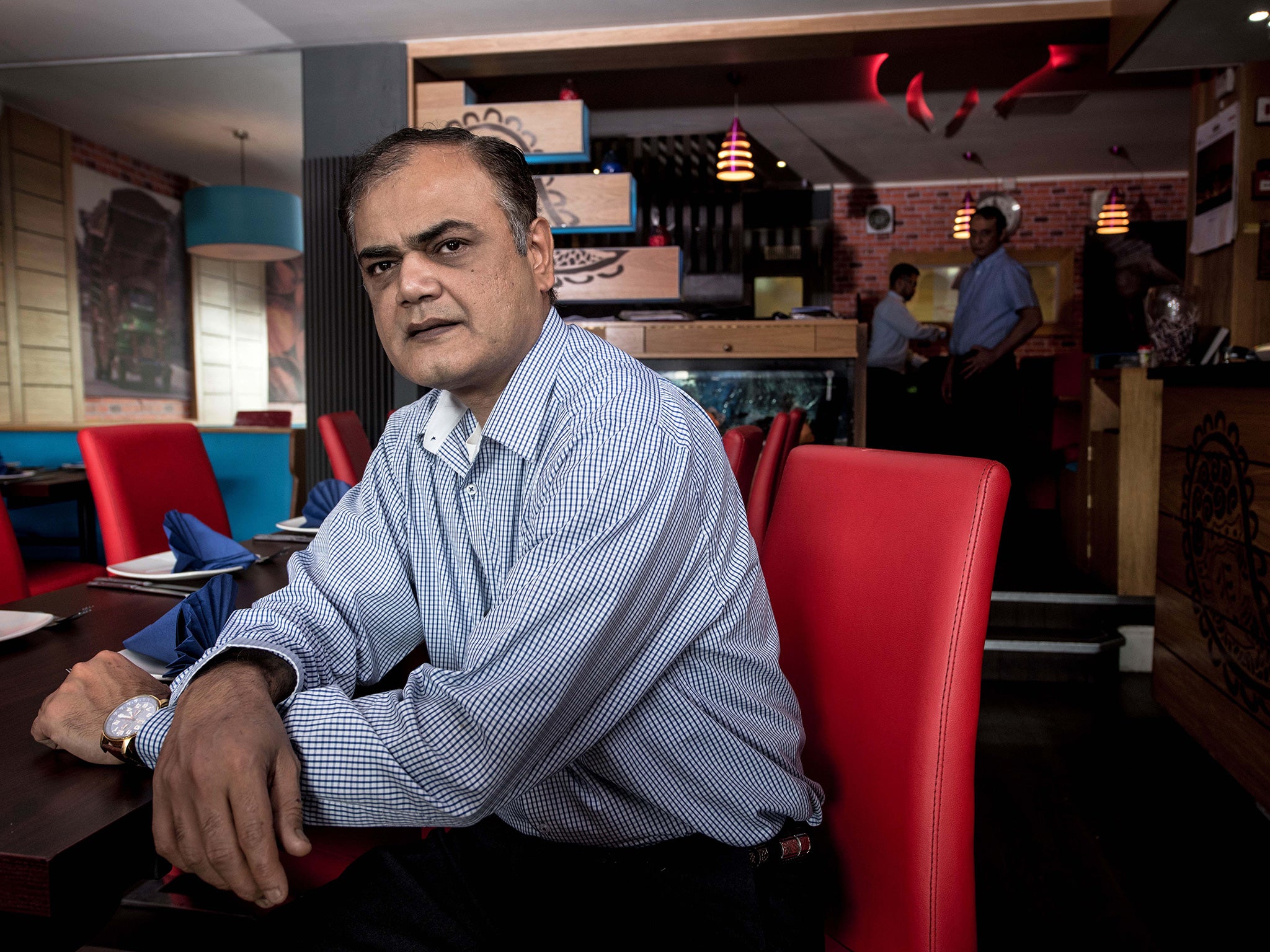Indian restaurants to lobby David Cameron for short-term work visas to plug chef shortage
Lack of experienced staff is forcing restaurant closures across the country

Your support helps us to tell the story
From reproductive rights to climate change to Big Tech, The Independent is on the ground when the story is developing. Whether it's investigating the financials of Elon Musk's pro-Trump PAC or producing our latest documentary, 'The A Word', which shines a light on the American women fighting for reproductive rights, we know how important it is to parse out the facts from the messaging.
At such a critical moment in US history, we need reporters on the ground. Your donation allows us to keep sending journalists to speak to both sides of the story.
The Independent is trusted by Americans across the entire political spectrum. And unlike many other quality news outlets, we choose not to lock Americans out of our reporting and analysis with paywalls. We believe quality journalism should be available to everyone, paid for by those who can afford it.
Your support makes all the difference.Indian restaurant owners have called on David Cameron to introduce short-term work visas so that they can fly experienced staff to the UK to plug a curry chef shortage that is forcing closures across the country.
Enam Ali, who founded the British Curry Awards 10 years ago, is preparing a submission to the Prime Minister and other cabinet members, including the Home Secretary, Theresa May, and the House of Commons Leader, Chris Grayling.
It warns that 90 per cent of curry restaurants are “under the threat of a chef skills shortage”, less than two years after Mr Cameron acknowledged at the 2013 awards that “there have been questions on immigration and getting chefs with the necessary experience”. The PM vowed to “continue to help you get the skilled Asian chefs you need”.

Indian restaurants employ 100,000 people and earn £4.2bn a year, but Mr Ali warned that it can take up to three years to train a chef from scratch, and that “hundreds” of the restaurants could soon go the way of local pubs and shut down. Second- and third-generation immigrants, he said, would often rather work in well-paid professions such as IT.
The submission states: “We know historically that immigration is a political exercise for any party who wants to use it to gain a political advantage, but sadly it is the curry industry that is paying the price for it. We therefore urge the Government to help our industry and we strongly recommend that the immigration laws covering bringing in chefs from abroad be made, even on a temporary basis, more adequately flexible. One suggestion would be short-term visas, similar to Germany, [the] US and the Middle East, where they have to leave the country after their term.... There would be no burden at all on the welfare system or the taxpayers.”
Shabir Mughal, owner of the award-winning Spicy Mint in the Curry Mile district of Rusholme, Manchester, said: “It’s a full-blown crisis. Indian and Pakistani restaurants across the country are in the same situation. The visa criteria make it impossible to bring in the right people. Take poppadoms. People take them for granted, but there is a technique that has to be learned. Every recipe is different and involves special skills.”

Mahtab Miah, owner of Vujon, in Newcastle, said that the problem had emerged only in the past five years, but was “getting worse and worse every day”.
Moula Miah owns three restaurants in Birmingham. In the past two years he has closed two others because of the struggle to find staff. Potentially skilful Eastern European migrants, he said, would “rather work in a coffee shop”.
Join our commenting forum
Join thought-provoking conversations, follow other Independent readers and see their replies
Comments